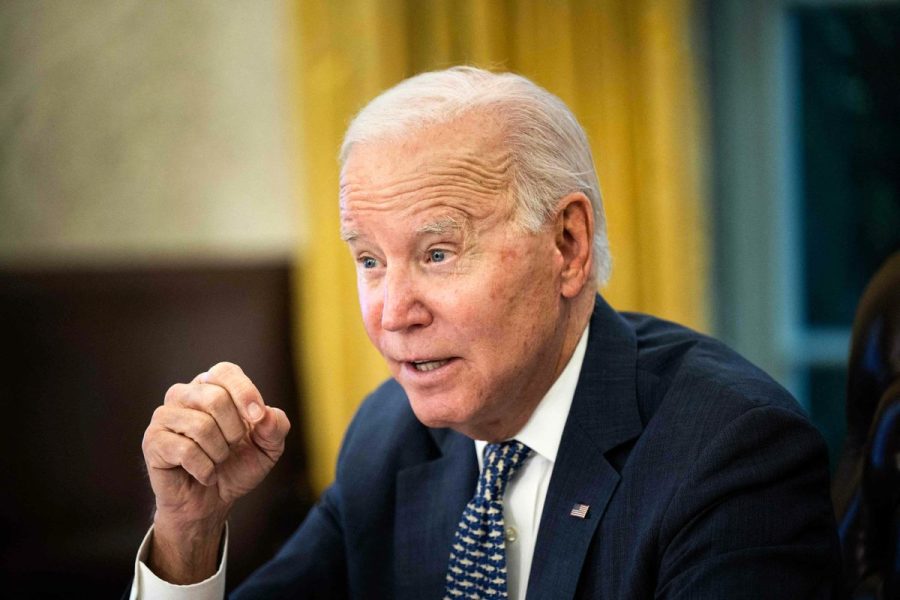Inflation Reduction Act Delivers for Elders
In August 2022, President Joe Biden signed a bill named the Inflation Reduction Act which would lower climate change effects like greenhouse gas emissions, decrease health costs and increase taxes for large companies and rich investors. More specifically, the bill “invests $370 billion in spending and tax credits” to expand federal health-insurance subsidies by allowing the government to “negotiate prescription drug prices for seniors on Medicare” and encourage use of low-emission energy forms. This bill is expected to decrease the federal deficit by $300 billion over a span of 10 years by increasing taxes by $300 billion on corporations and large firms. The bill also provides funding for the Internal Revenue Service to follow up on tax evasion and gather the potential billions of dollars owed to the government by companies and wealthy individuals.
Although the bill does seem to address some key points about climate change and prescription drug prices for seniors, a majority of Republicans voted against the act, citing that the law would be “discouraging investment in life-saving cures” by trying to control prices. While this is a definite concern, it is more important for the elderly to be able to afford their prescriptions.
There are many elderly people on Medicare are grateful for the new bill. For example, diabetes affects about one third of the elderly population in America and 10.5% of the total population, yet insulin and other equipment required for diabetes care is expensive. For one elderly individual with Type 2 diabetes, his total insulin tab in 2022 was $1,582, which included costs made out of pocket such as “a deductible of $480, monthly supplies of two forms of insulin and higher prices once he entered the ‘coverage gap.’” This is especially difficult for elderly individuals as they aren’t working as much as they used to or have retired, meaning that it is tougher to pay these expenses.
Due to these overblown prices, many people with diabetes aren’t able to afford their medication and are forced to ration their supplies or skip out on taking them for some time. While this can save them money in the short run, it leads to health complications for individuals which land them in the hospital, forcing them to pay more money. The Inflation Reduction Act will help individuals with Part D Medicare Advantage plans or other plans with Medicare by putting a “$35 monthly cap on insulin” which would apply immediately for individuals, meaning they wouldn’t have to pay the deductible. Overall, this monthly cap would save individuals an average of about 35% and would be especially beneficial to individuals who pay thousands of dollars on insulin. Adult vaccines under Part D would also be free, which would allow many elderly individuals with Part D plans on Medicare to receive helpful vaccines such as the shingles vaccines which were once very expensive.
Additionally, under the bill, for drugs under Part D and some for Part B, drug manufacturers would have to pay rebates to Medicare for drug prices, which rise faster than the inflation rate. In theory, it is expected that drug prices would decrease due to the penalties of having to pay rebates. In 2024, Medicare will limit out of pocket spending to $3,250 and widen low-income subsidies. In the following year, the limit will be set to $2,000. This will be advantageous to individuals who have expensive medication or who have to pay for multiple medications. Overall, this act would reduce the financial burden of medication for many seniors on Medicare. It would allow them to afford the medication without having to resort to choosing between their health and other aspects of their life.
While the hindering of drug development is a significant problem, it is equally as important for people to be able to afford medication. The Inflation Reduction Act targets only a subset of people who need medication (seniors with Part D Medicare), but it is a step towards the right direction. Elderly citizens shouldn’t have to choose between buying their medication and other important expenses such as food or bills. When a vulnerable part of the population isn’t able to afford treatment for something that is available, it negates a lot about that valuable treatment as it isn’t able to reach the people who really need it. Providing pharmaceutical companies funding for drug development is important, but it is also important for people to not be financially burdened when getting their medication. Hopefully people who purchase medicine in the future can also benefit from an act like this.
Saisha Islam, FCRH ’25, is a biology major from New York, N.Y.

Saisha Islam is a senior from the Bronx, N.Y., who is majoring in biological sciences and minoring in English. She first joined The Fordham Ram as a contributing...










































































































































































































